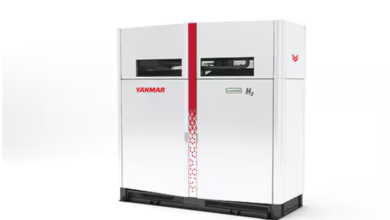CGG and University of Edinburgh work on hydrogen storage research
The project aims to demonstrate hydrogen storage’s feasibility and operational characteristics.

CGG and the University of Edinburgh have commenced an industry-leading project to undertake research into the subsurface storage of hydrogen in depleted gas fields.
Hydrogen can be generated from electrolysis using renewable energy sources (‘green hydrogen’) and can help to alleviate the intermittent nature of renewable energy such as solar and wind. Alternatively, ‘blue’ hydrogen can be generated from gas (methane).
There is currently considerable interest in replacing traditional fossil fuels, like natural gas, with hydrogen in many industries, including energy and manufacturing and domestic heating. However, hydrogen has a very low energy density, meaning huge volumes are required to replace methane, making surface storage impractical. Subsurface hydrogen storage in depleted gas fields may offer a critical solution.
CGG and the GeoEnergy research group at the University of Edinburgh will model the heterogeneity of subsurface geological reservoirs to ascertain the most favourable potential sites for hydrogen storage and whether alternative cushion gases, such as CO2, can be used to reduce the operational storage and recovery costs of hydrogen.
This could make low-carbon hydrogen energy storage feasible on a terawatt-hour scale, allowing intermittent renewable electricity to become a round-the-clock resource through ‘green’ hydrogen generation and use. The project results will be vital for the energy industry and regulators, enabling them to improve decisions on efficient hydrogen storage site selection and optimisation strategies.
CGG’s CCS & Energy Storage group has cooperated closely with the University of Edinburgh’s GeoEnergy research group over the last four years, acting as advisors to the UK Hydrogen Storage in Porous Media (HyStorPor) research project.
Funding for the project was awarded as part of the Net Zero Technology Centre’s (NZTC) 2021 Call for Ideas, which saw investment in game-changing technologies to accelerate hydrogen production, transportation, storage and utilisation.
Dave Priestley, VP, Energy Transition & Environment, CGG, said, “Our participation in this important research project will draw on CGG’s geoscience expertise and technology leadership and demonstrates our commitment to working with research partners such as the University of Edinburgh to develop the knowledge and solutions that will best support the energy transition.”
